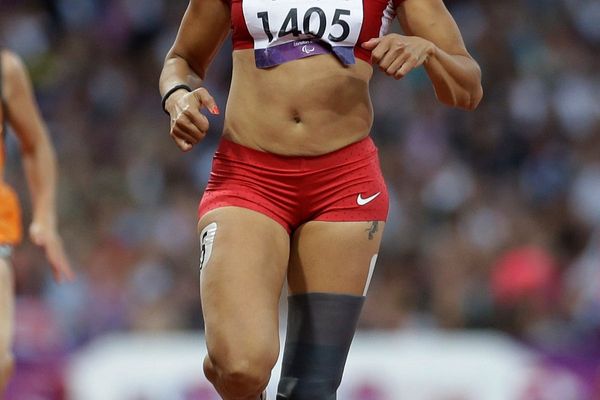
Not going to lie, this is a bit of a shock. Despite boasting young speedsters like Chris Olave and Rashid Shaheed, the New Orleans Saints fielded one of the slower wide receiver corps in the NFL in 2022. While Olave and Shaheed have comfortably timed in the 4.3-to-4.4-second range in the 40-yard dash, as a group New Orleans was weighted down by players like Jarvis Landry (4.77), Marquez Callaway (4.55), Tre’Quan Smith (4.49), Michael Thomas (4.57), and Keith Kirkwood (4.50), with dynamic athletes like Kevin White, Deonte Harty, and Kirk Merritt only running a handful of routes over the course of the season.
So it’s clear the Saints need to get faster. Per research from Arjun Menon of Pro Football Focus, New Orleans ranked right around the middle of the pack with the 14th-slowest wide receiver room, based on average 40-yard dash time weighted by routes run. Teams’ leaders in routes run factored heavier than backups and reserves, and the Saints’ top route-runners included Olave (431 routes), Landry (207), Callaway and Shaheed (188 each), and Smith (178).
No receiving corps was slower than the New York Giants, who averaged nearly 4.6 seconds as a group. And the Seattle Seahawks set the pace with a blazing average of roughly 4.37 seconds. For comparison, the Saints scored an average of about 4.47 seconds:
Feels like a dataviz crime but multiple people have asked so rescaled the y-axis so the differences in speed are easier to see.https://t.co/g6BeZ4lllX pic.twitter.com/hN4Kksfgh0
— Arjun Menon (@arjunmenon100) January 30, 2023
Olave and Shaheed are a fine pair to build around, but the Saints should be looking to get younger at receiver in 2023 — or at least more explosive and athletic. Trotting out players who lack the speed to separate with consistency like Landry and Callaway is asking for trouble. It limits what can be done offensively and narrows the margin for error in demanding a quarterback and receiver be perfectly in sync from the snap to the whistle. There are plenty of slower receiving rooms around the NFL, but the New Orleans offense was so stagnant last season that you’d be forgiven for thinking otherwise.







